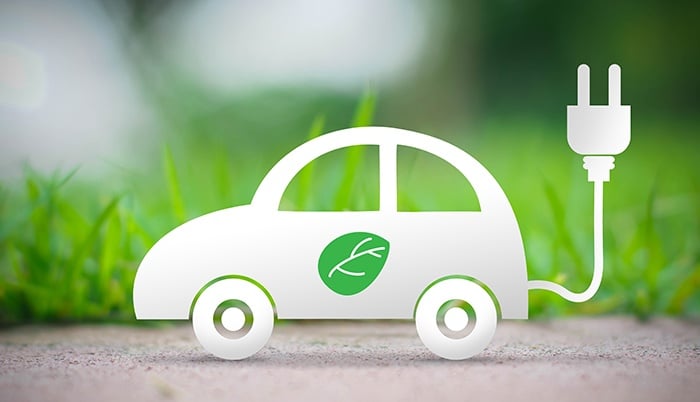The challenges and benefits of Electric Vehicles
Dec 19, 2017 • Features • Fleet Technology • Bluedrop Services Motor Fleet Insurance Brokers • Electric Vehicles • fleet management
When compared to traditional combustion engine vehicles, Electric Vehicles (EVs) can go a long way to reducing the overall costs for any fleet. Mark McKenna, National Sales Manager at Bluedrop Services Motor Fleet Insurance Brokers, suggests that once considering the whole life costs of an EV, investing in such a fleet makes sense.
However, there is always the initial hurdle of the upfront cost to a business. If you have the capital to hand you can make the numbers work, but for most companies it is hard to justify the initial outlay.
Perceptions of EVs running out of charge
One of the other issues around the adoption of EVs is the perceived idea that the vehicles won’t have enough stored power to last for a full day of business driving requirements. Many businesses also perceive that they require more mileage out of the vehicle than they would use in a day.
With the range of use on Electric Vehicles constantly increasing, unfortunately the anxiety around not having enough charge is not seeming to shift. The fact is that mileage range of an EV often fits nicely into the journeys actually being travelled by a fleet, but the mentality surrounding this issue is not changing.
Over time charging time will decrease
Soon however, charging will be so quick that this perception will no longer be a problem. It is all about changing mindsets and educating as well as allowing businesses to test the use of EVs so they can offset their fears. Those medium sized fleets that on the majority conduct shorter journeys would find EVs hugely beneficial, experiencing significant savings.
Additional savings surrounding EVs
Taxes, grants and congestion charges also offer a good sound argument for investing in EVs. The Government have introduced several incentives, making both electric and plug-in vehicles more attractive to both consumers and fleets.
These include low or zero road tax and the exemption from the London Congestion Charge, as well as the suggestion of a national scrappage scheme. Other countries, such as Norway are also offering strong subsidies for EVs, no VAT, free parking and allowing drivers to utilise bus lanes.
London has also recently introduced the Air Quality Business Fund to help companies adopt EVs. This is where businesses can apply for a share of £1 million to help deploy electric cars and charging points to reduce pollution in the capital. The fund itself aims to create five business low emission neighbourhoods. The winners of the fund will be able to use £200,000 to encourage inhabitant to walk, cycle or use public transport, as well as installing EV charging points.
Forward thinking firms as a result are giving careful consideration to the opportunities offered by EVs and are starting to weigh up the pros and cons of their investment. The savings in terms of tax breaks and grants, in addition to fuel cost savings are making a compelling business case.
Electrical charging infrastructure set to grow
The electrical charging infrastructure has long been something of concern in consideration to adopting EVs, however the Queen’s speech which followed the State Opening of Parliament set out the priorities of Government to include improving the national charging and hydrogen refuelling infrastructure.
The legislation will allow the government to require the installation of charge points for electric vehicles at motorway services and petrol stations. Such legislation is essential for making charging faster, cheaper and easier for businesses, helping to accelerate the adoption of EVs and discourage negative concerns.
But will electricity supply cause future issues?
It has also been considered that the rising uptake of Electric Vehicles itself may even start to form one of the challenges against them.
When you consider the fact that more and more requirements on the grid for electricity may cause significant shortages of supply, one solution could be the installation of off-grid power solutions such as PV or wind turbines to deal with the increasing demand on the energy infrastructure.
As the demand for Electric Vehicles continues to grow the impact on energy supplies and the transport infrastructure to meet future needs will be tested.
Whilst there are many challenges surrounding the uptake of EVs the opportunities continue to outweigh them with significant savings to business as well as going a long way towards meeting air quality requirements.
Be social and share





















 Field Service News is published by 1927 Media Ltd, an independent publisher whose sole focus is on the field service sector. As such our entire resources are focused on helping drive the field service sector forwards and aiming to best serve our industry through honest, incisive and innovative media coverage of the global field service sector.
Field Service News is published by 1927 Media Ltd, an independent publisher whose sole focus is on the field service sector. As such our entire resources are focused on helping drive the field service sector forwards and aiming to best serve our industry through honest, incisive and innovative media coverage of the global field service sector.
Leave a Reply